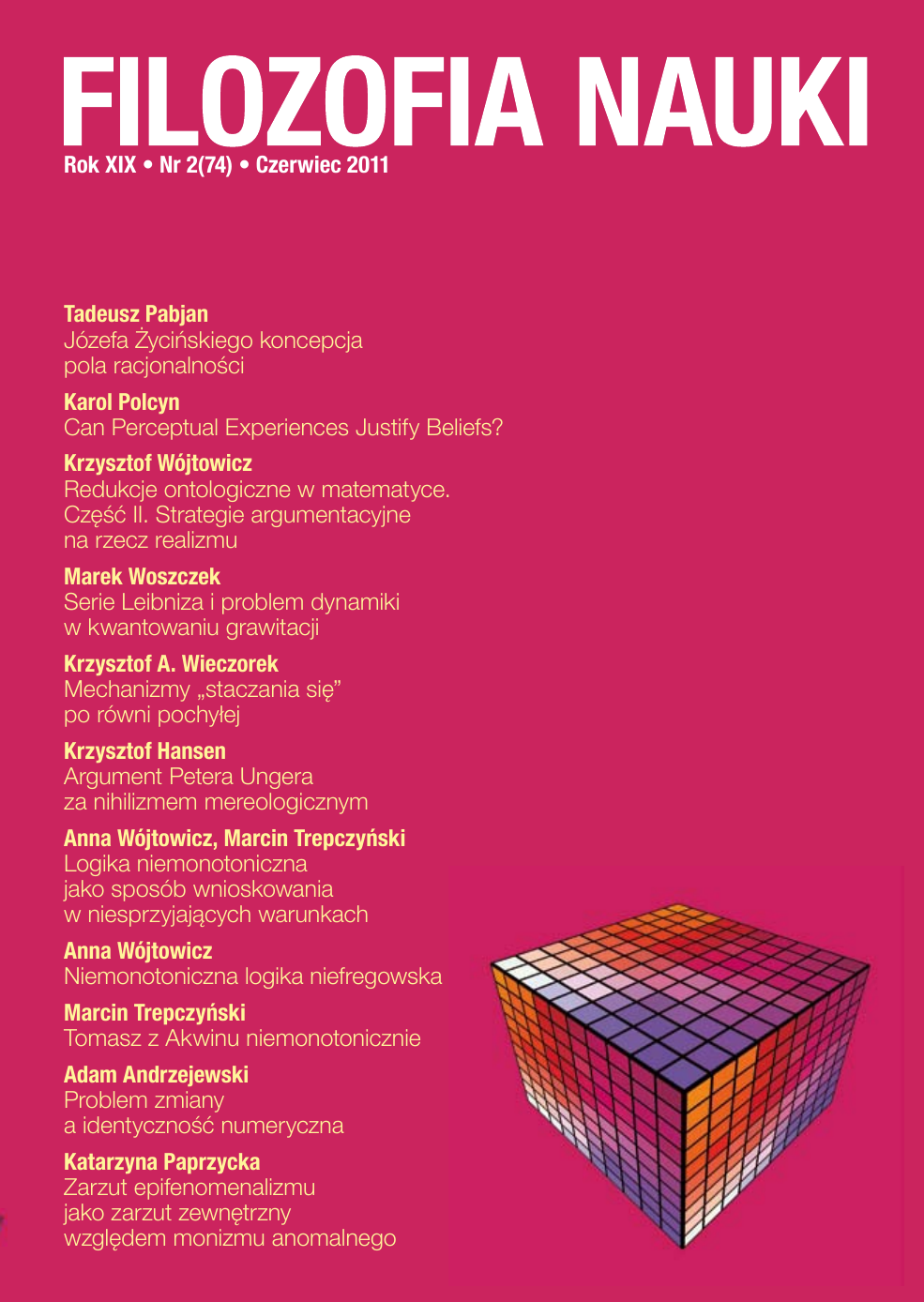Tomasz z Akwinu niemonotonicznie
Słowa kluczowe:
non-monotonic-logics, Thomas Aquinas, reasoning, inference, Summa TheologiaeAbstrakt
Non-monotonic logics has been popular for recent 15 years. However, it occurs that they are useful to describe some reasonings presented by… Thomas Aquinas. In this paper I show four examples of reasonings where Thomas abandons the principle of monotonicity, all taken from two questions of Summa theologiae concerning God. In each of them Aquinas adds some new premises to the previous set of premises and then draws a conclusion contrary to the previous one, what is impossible under the classical inference. In the next step I present some conclusions, primarily: that for sure we cannot state that these reasonings are just entimematic; that Thomas appears as a superintelligent observer having a holistic view and hence may seem to use in his reasonings rather reduction than deduction; and that we should not call his logic „default”, but rather talk about „the logic of theoria” or „contemplative/speculative logic”. Finally, I try to find the goal (or the meaning) of using by Thomas one of non-monotonic logics, taking into account that his inferential and interpretive rules serve to organise and clarify some theses (which are very instructive from the perspective of hermeneutics). Perhaps we may find this goal in… education. Well, after all, the Summa is a textbook. As we can see — not only of theology.















 Filozofia Nauki | ISSN 1230-6894 | e-ISSN 2657-5868
Filozofia Nauki | ISSN 1230-6894 | e-ISSN 2657-5868